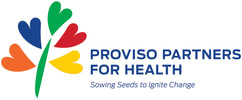 By Drew Martin | Thursday, January 24, 2019 | Institute for Healthcare Improvement How does someone who has avoided talking about race for most of his life learn the value of challenging racism? My story goes back to my teens. I did not experience blatant racism until my first day at a predominantly white Catholic high school on the southwest side of Chicago. Hearing the N-word was nothing new; it was commonplace in my neighborhood. But this time the elongated pause after it was said was different, as was the anger it stirred in me. As the only black student, however, I learned to turn my anger into assimilation during my high school years. The school made me its first mediator. At an all-boys school, fighting wasn’t uncommon, but while others fought, I carved out a niche for myself. I became a peacemaker. I thought this was a good situation for years. I heard the N-word a lot less, but it didn’t erase other things going on. Being the only black student, for example, meant feeling like I needed to — and often implicitly being asked to — represent all black people. It made me feel so uncomfortable with who I was. Later in life — in college, at work, and in my community — I ignored inequities that have kept generations of people from reaching their fullest potential in health and well-being. I was averse to talking about race because I had spent so much time in high school representing all black people. I got tired of being a black man. It’s not that I ever wanted to be anything else, but when I was a financial analyst, and others at my company started a black awareness group, I refused to join. I desperately wanted to be part of it, but I couldn’t bring myself to take part. I couldn’t even put pictures of Martin Luther King, Jr. or Malcolm X at my desk as others did. In 2015, while I worked with Proviso Partners for Health, I realized my passiveness was contributing to the inequities that had been too painful for me to acknowledge when I was younger. That was the year I was introduced to 100 Million Healthier Lives, a global network of solutions-focused leaders with an aim of 100 million people living healthier lives by 2020. Read More....
1 Comment
|
Economic Justice and Community Leadership Academy
The Community Leadership Academy (CLA) offers residents with lived experience the opportunity to develop their leadership skills and learn innovative strategies for sustainable community transformation and economic development. AuthorArchives
June 2020
Categories |

 RSS Feed
RSS Feed